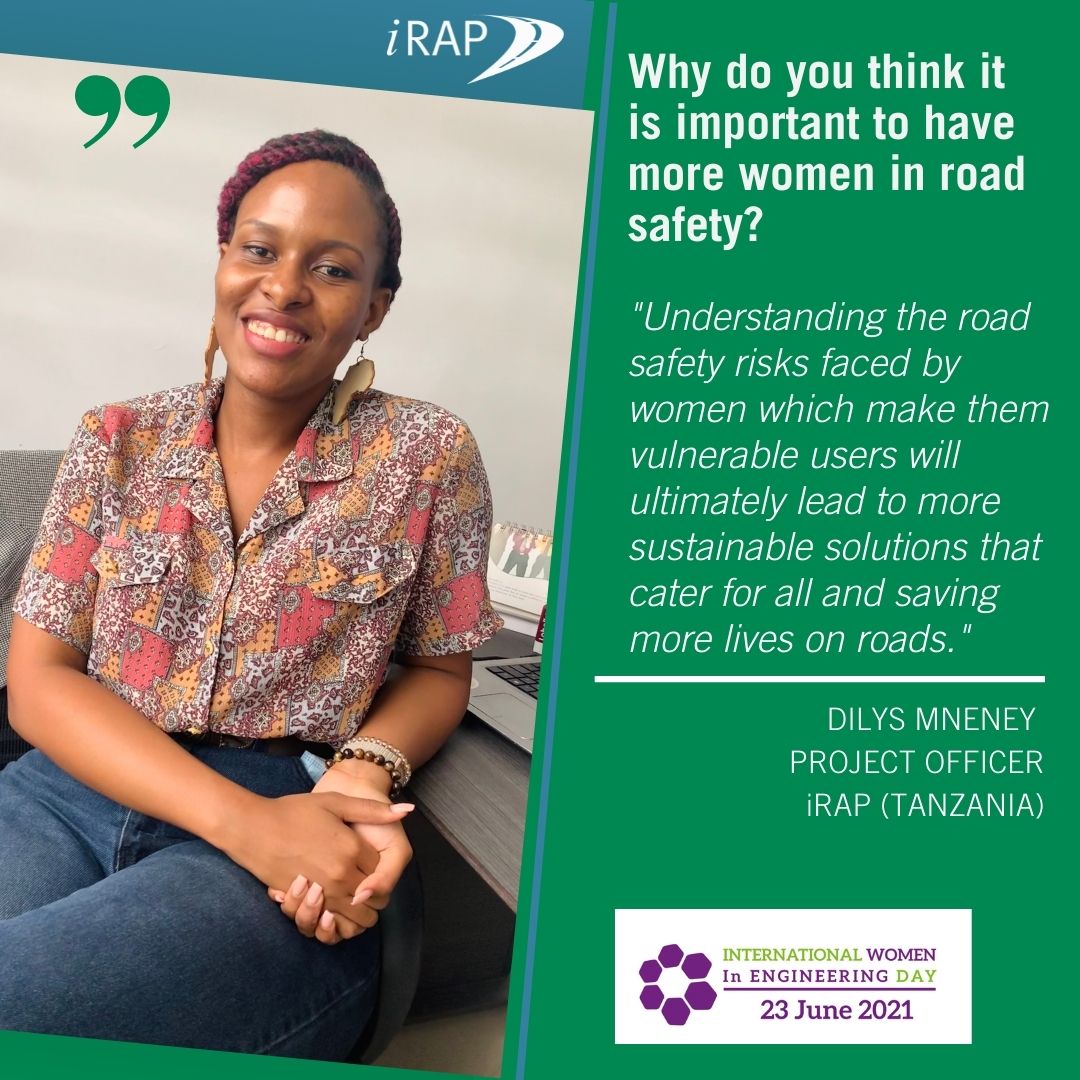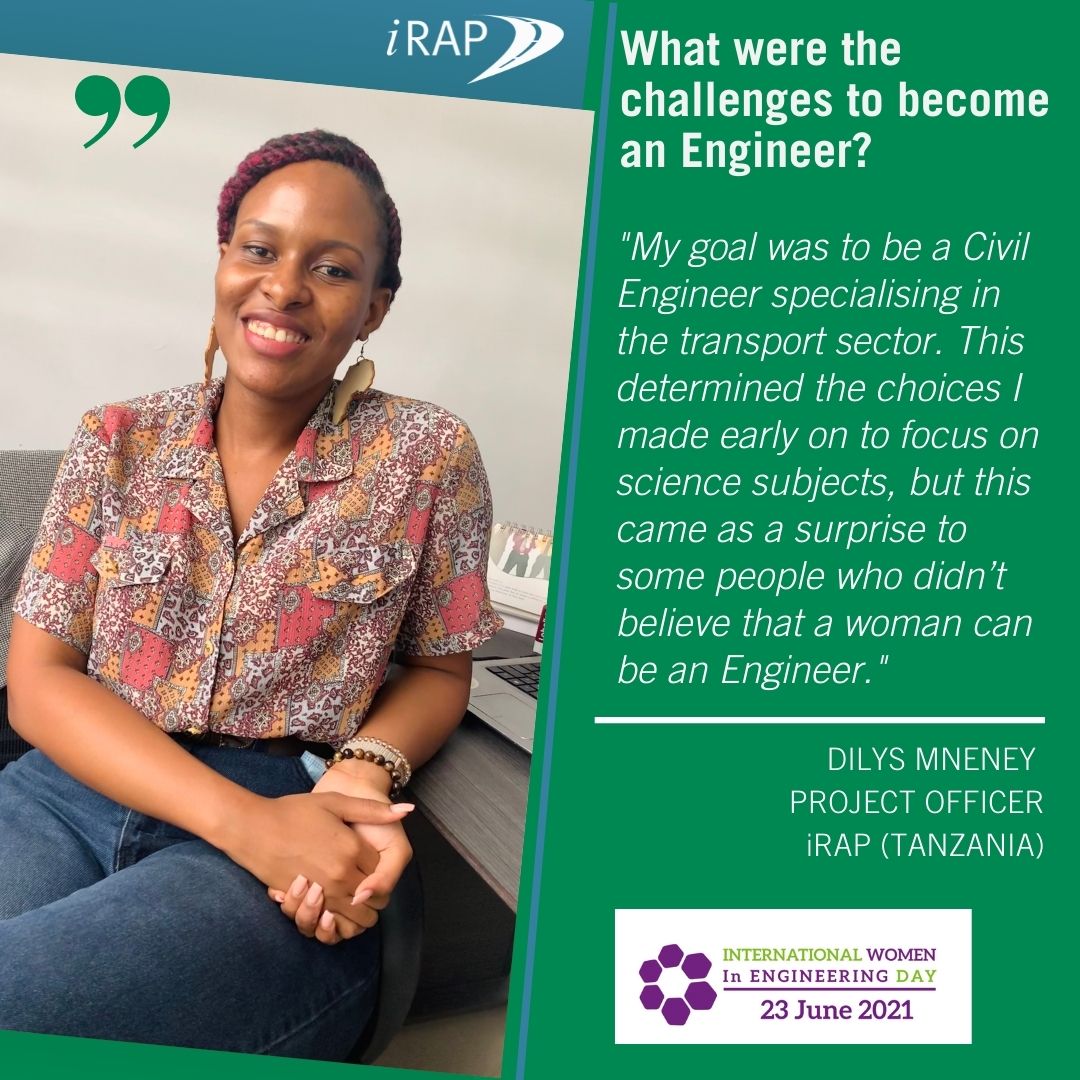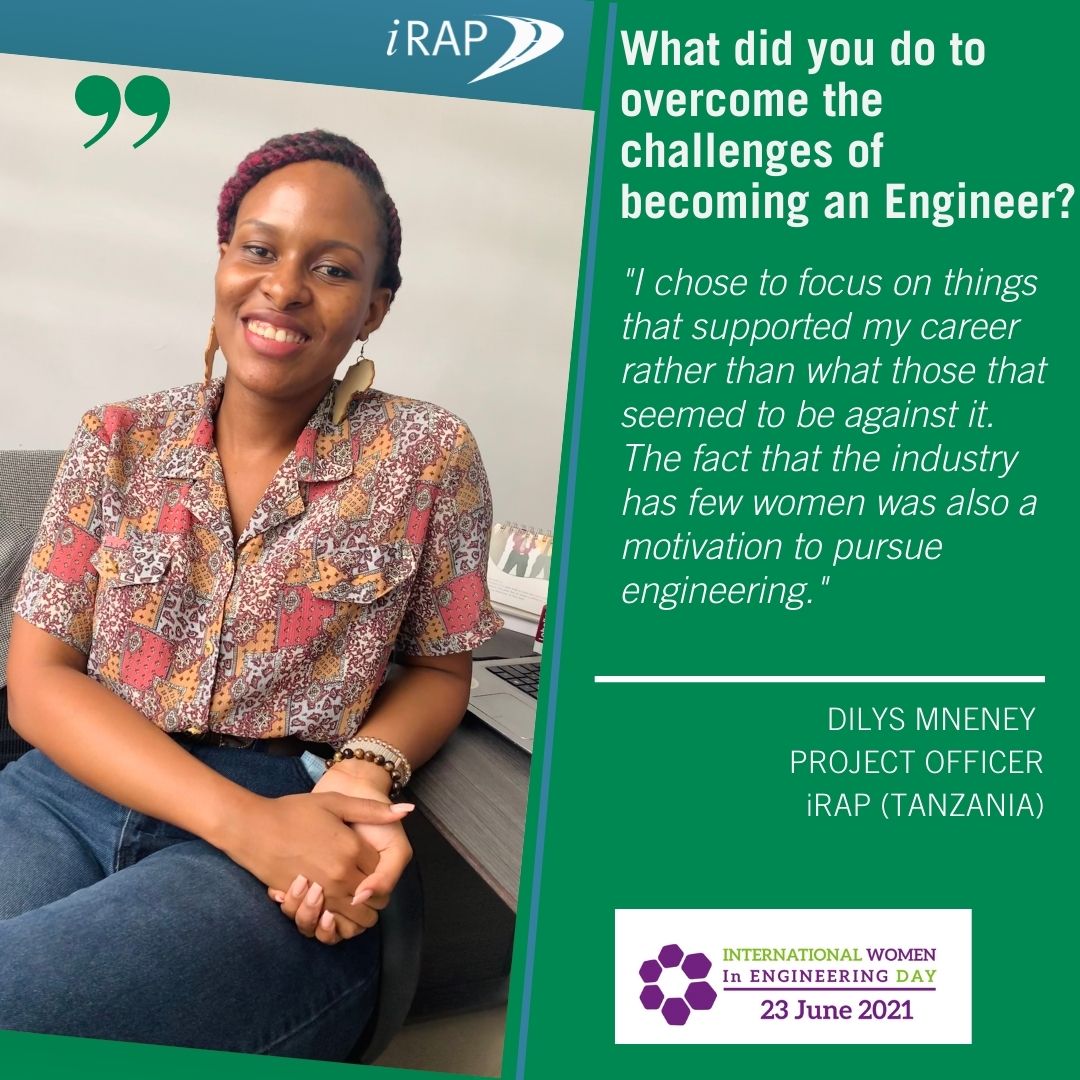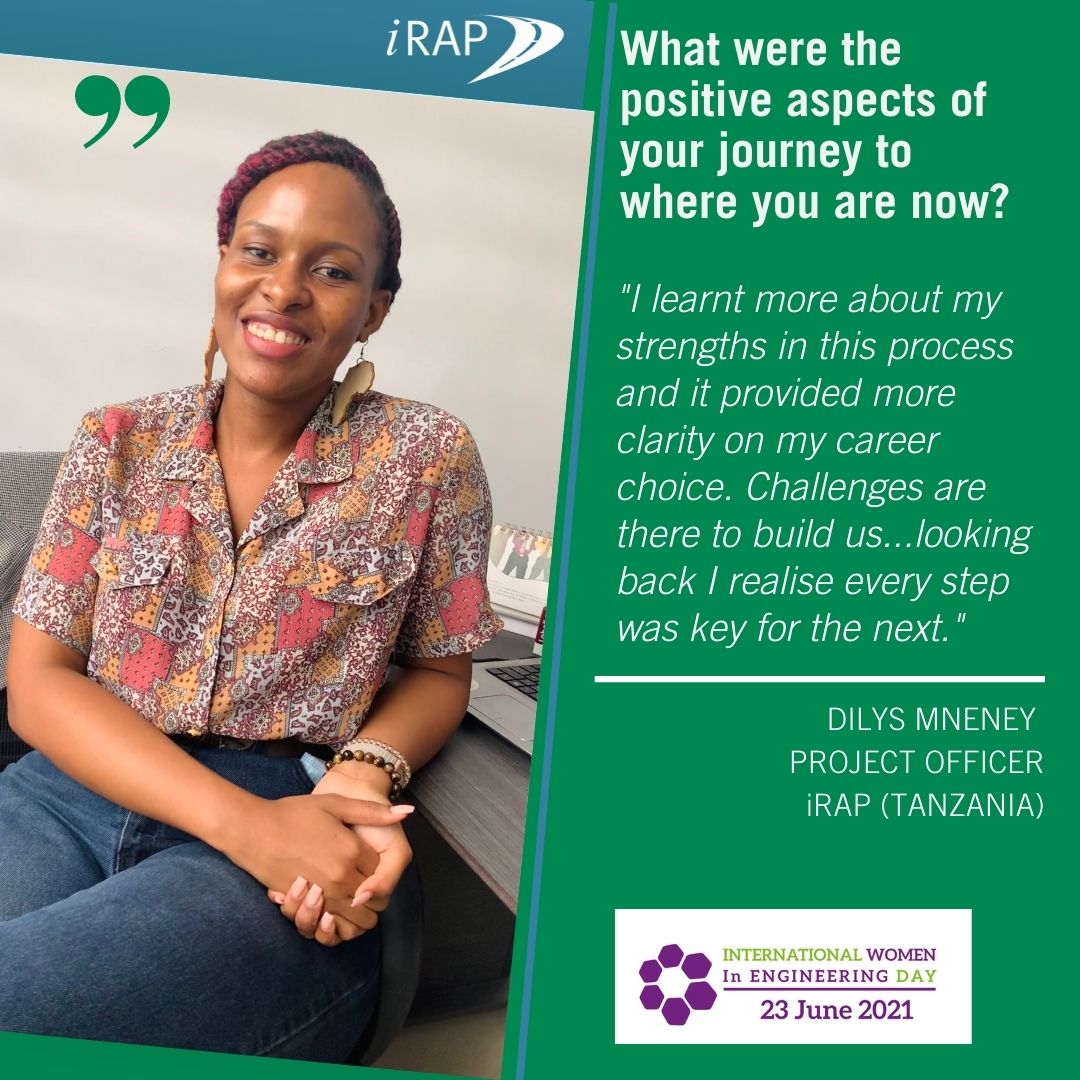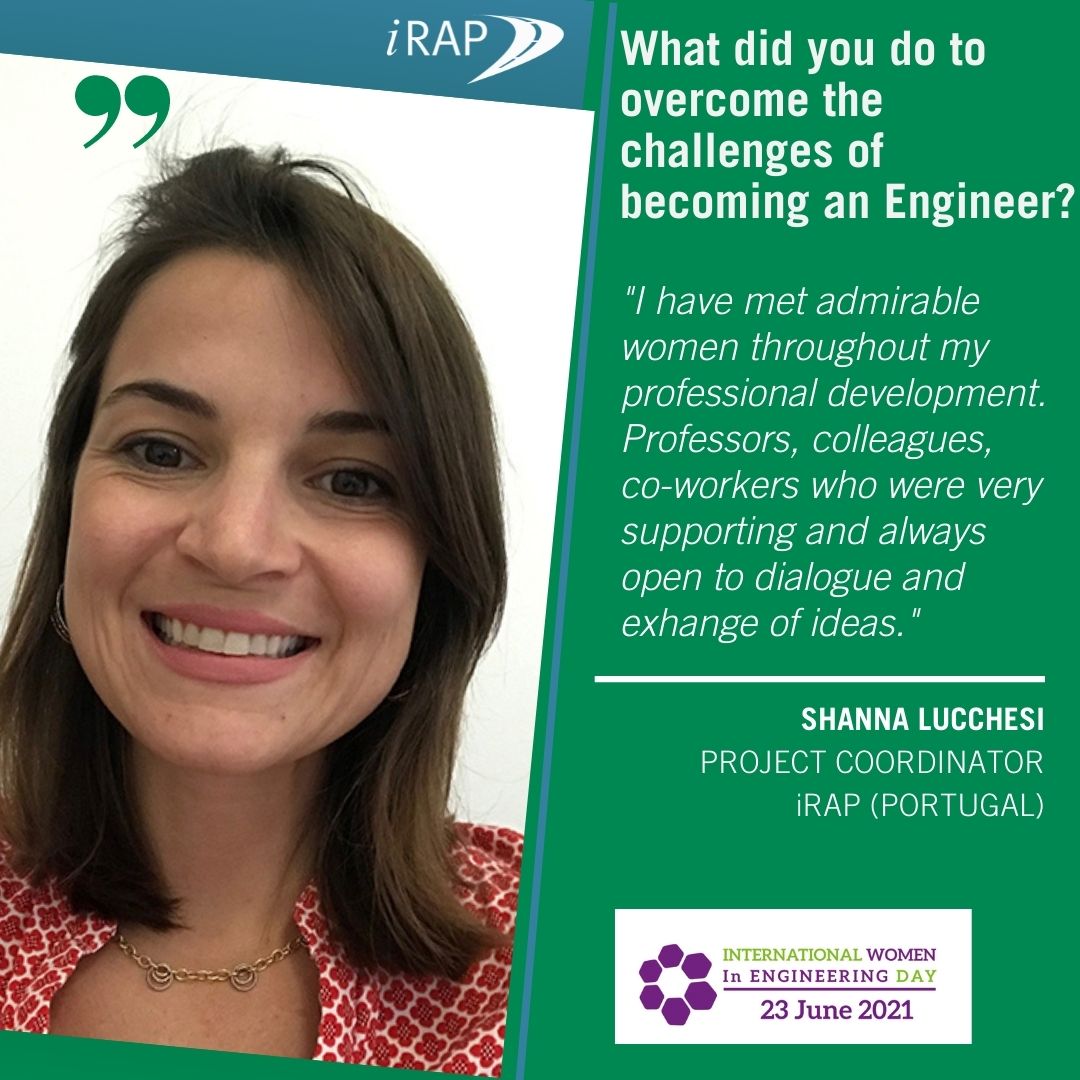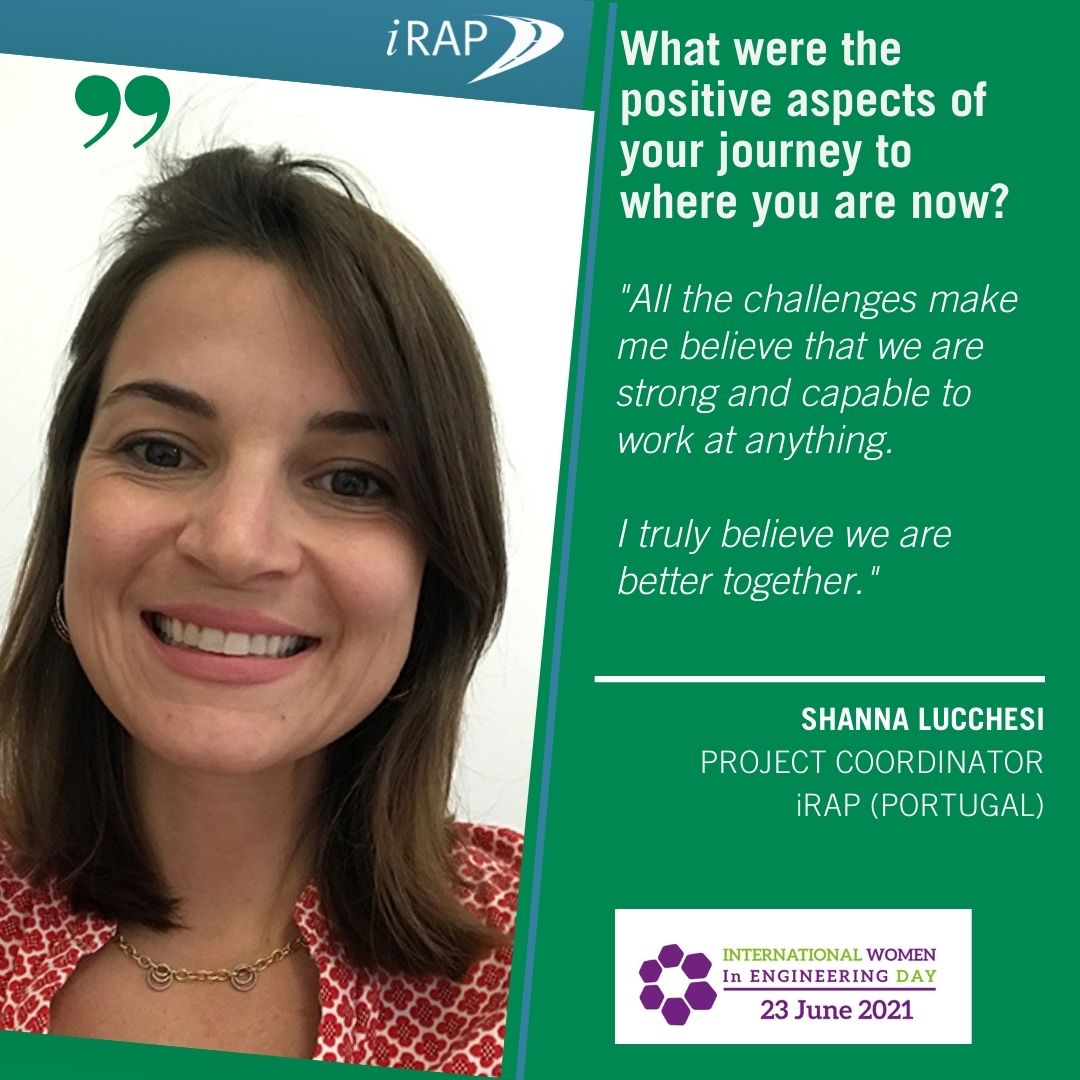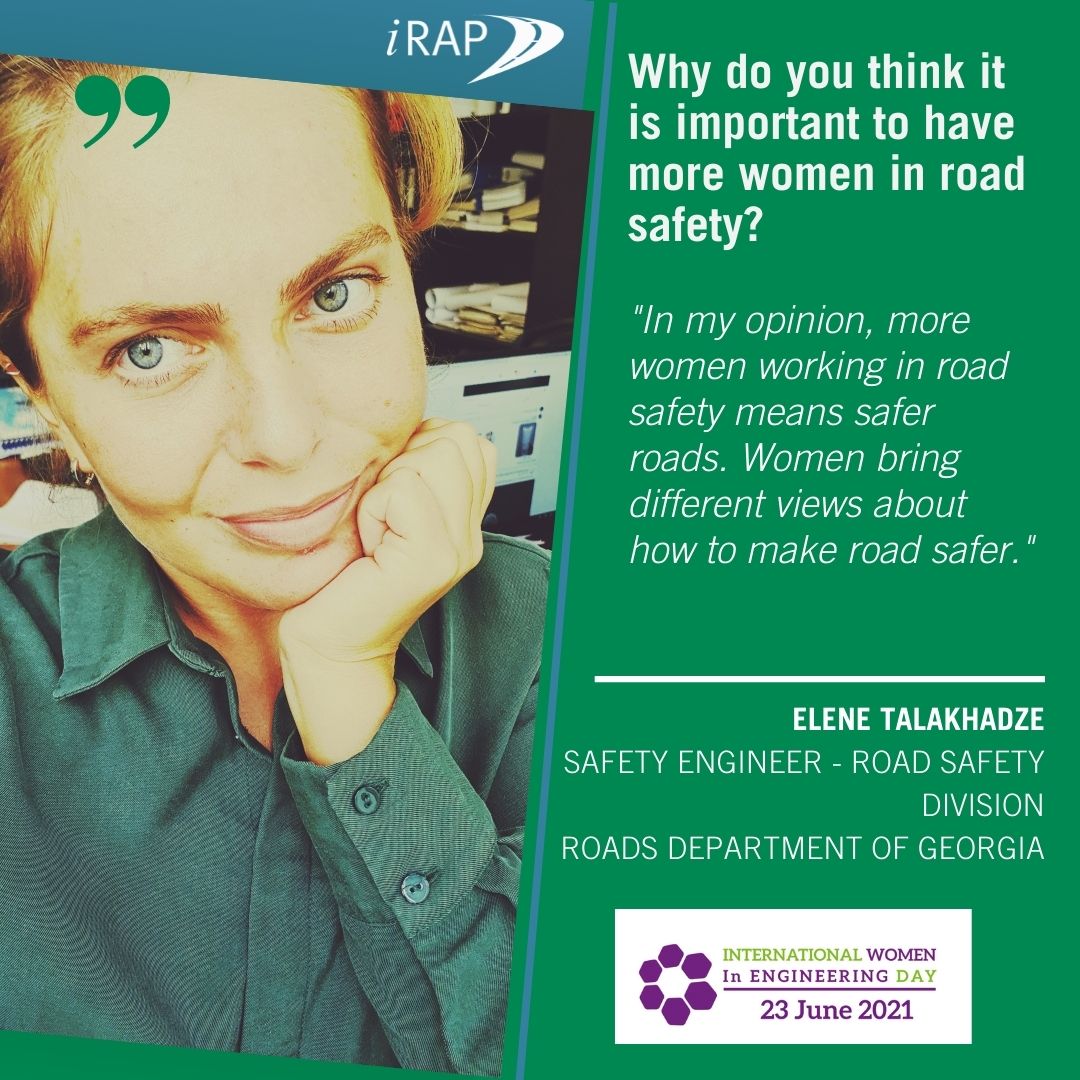International Women in Engineering Day – Recognising #EngineeringHeroes in Road Safety
International Women in Engineering Day (June 23 2021) is an international awareness campaign to raise the profile of women in engineering and focus attention on the career opportunities available to females in this industry. It celebrates the outstanding achievements of women engineers throughout the world.
This year iRAP is celebrating our #RAPCommunity Engineering Heroes – recognising the amazing work that women in road safety engineering are doing to help save lives around the world on our roads.
Below we profile some of our #RAPCommunity female leaders from around the world and ask them how important it is to have a women in road safety, their challenges and successes.

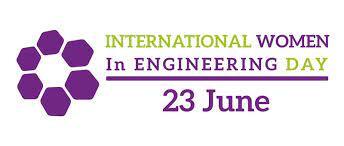
Announcement: iRAP training grants now available for 20 women in Engineering
Click here for more information or to apply
Alina Burlacu
Senior Transport Specialist & Programme Manager BIGRS, World Bank Global Road Safety Facility (USA)
Click on the image to enlarge or click (+) read full interview underneath images.
Click here to read Alina's full response
Why do you think it’s important to have more women in road safety?
Women bring a different perspective to engineering, including to road safety, through their more empathetic nature. If we look at road standards from tens of years ago, when most of the engineers were men, they are car-centric and focused on speed, without considering safety too much, especially for those that are most vulnerable – children, elderly and the disabled. There are multiple studies showing the gender differences in terms of driving behaviour, and I think these could be expanded to those designing the road also – men are more into driving fast, whereas women are more cautious, putting safety first. Having more women in engineering and road safety will definitely help push towards the right actions for saving lives from road crashes.
What were the challenges to become an engineer?
Women engineers are still seen as outliers rather than normality, but I strongly hope this will be changed in time. I had to study more than most of my male-colleagues and be an A-student. This happened also after I got my degree, as they tended not to listen to women engineers as much, so I had to be very well prepared all the time and know my work at perfection.
What did you do the overcome these challenges?
Simple answer – I followed my passion. I love engineering, but I also love psychology, so these two combined made me fall in love with road safety, which became my passion ever since I was a student and I first heard of a blackspot. I had professors, family and friends telling me that road safety engineering is not a real field for me to work in, and I should just focus on road design. But, I listened to my inner voice and pushed for a PhD thesis on road safety engineering, which was one of the first of its kind in my country. I cannot imagine myself not working in this field.
What were the positive aspects of this process?
A positive aspect that I am proud of is being able to change mindsets. When I first enrolled for my PhD, I didn’t receive much support, but as I was progressing with my research, I could see how professors and colleagues were starting to understand the scope of my studies and see things differently. I was very happy with various occasions to hear seasoned engineers and professors telling me how through my research or presentations delivered, they are looking at road engineering from a different perspective. And I truly think women have this ability to provide different perspectives, especially adding safety considerations.
Estara Ellizar
Transport Planner, Ministry of Transportation (Indonesia)
Click on the image to enlarge or click (+) read full interview underneath images.
Click here to read Estiara's full response
Why do you think it’s important to have more women in road safety?
We need more women in road safety to have a female aspect for the choice of transport modes that will benefit all transport users. Women have a different travel pattern over men which is more complex. Men usually make mostly direct trips, the women tend to take short trips using different services and often involving children or groceries. They prefer driving to walking, cycling, or using public transportation due to safety reasons. Having more women in road safety will ensure the equity for universal access and safer mobility for everyone.
What were the challenges to become an engineer?
As a woman, it is very challenging since more than two-thirds of the engineers are men, the voice from the majority is sometimes more often be heard. The assumed power of men in the industry has led to gender discrimination. The people just see gender without considering the skill for a particular case, which I think is not fair.
What did you do the overcome these challenges?
Collaboration is key to overcome these challenges. I believe that everyone is unique, and putting it all together in one bowl to create a safer transport system design will benefit all road users. Women have more direct experience as vulnerable road users which can give more input in pre-planning design, where men who has more practical experience in transport design could complement each other.
What were the positive aspects of this process?
Collaboration between men and women will create a greater impact on people on transport safety and mobility. We have both sides of experience from men and women which will make a balance in transportation system toward road safety. Addressing gender issues in transport will benefit not only women but all transport users, by encouraging a user-centric approach to provide high levels of accessibility.
My Huynh (Program Assistant) and Quyen Bui (Monitoring & Evaluation Assistant)
AIP Foundation (Vietnam)
Dilys Mneney
Project Officer, iRAP (Tanzania)
Click on the image to enlarge or click (+) read full interview underneath images.
Click here to read Dilys' full response
Why do you think it’s important to have more women in road safety?
Representation is key to be able to cater needs of people. More women in road safety brings on expertise and realities surrounding more than half of the population in their day to day activities. Either from experience or observation, women tend to be the largest beneficiaries in transport sector due to their societal responsibilities. They have more trips and tend to travel with dependants making them more exposed to the road infrastructure and transport systems. Understanding the road safety risks faced by women which make them vulnerable users will ultimately lead to more sustainable solutions that cater for all and saving more lives on roads.
What were the challenges to become an engineer?
It has always been my goal to become a Civil Engineer specialising in the transport sector. This determined the choices I had to make early on in my studies focusing more on science subjects but this came as a surprise from some people around me who didn’t believe that a woman can be an Engineer. However this was not setback as I received support from my family who are engineers/scientists and always encouraged me to walk my path. I would say, my biggest challenge was when I was not selected to pursue Civil Engineering degree at the University of my choice. Unfortunately I did not qualify and was instead selected for BSc. In Construction Studies. A year into the degree I realised that I still had passion for Civil Engineer where I then decided to request for transfer and fortunately I qualified for a transfer. This resulted to a very educative and exciting 5 year journey to complete my degree.
What did you do the overcome these challenges?
Through determination and focus I was able to overcome the challenge. I chose to focus on things that supported my career rather than what those that seemed to be against it. The fact that the industry has few women was also a motivation to pursuing the engineering field as representation is important in building a sustainable system.
What were the positive aspects of this process?
I learnt more about my strengths in this process and it provided more clarity on my career choice. Challenges are there to build us as much as it may be difficult to see that when facing them but looking back and I realise every step was key for the next. I am honoured to meet and learn from the women in road safety sector, each and everyone’s work is essential.
Shanna Lucchesi
Project Coordinator, iRAP (Portugal)
Click on the image to enlarge or click (+) read full interview underneath images.
Click here to read Shanna's full response
Why do you think it’s important to have more women in road safety?
It is crucial to have more women working in the field since we have different mobility patterns than men. We travel more and do more complex trips since in different parts of the globe women are still the ones responsible for the kids and home care. In the end, road safety is about understanding these travel demands to guarantee that we can back home safely.
What were the challenges to become an engineer?
Engineering is still a very masculine field. I remember being in classes where I was the only female student and having to listen to some not-funny jokes. This hostile environment is very discouraging and that’s why many women end up following other areas of work.
What did you do the overcome these challenges?
I have met admirable women throughout my professional development. Professors, colleagues, co-workers, and others, they were very supportive and always open to dialogue and exchange of ideas. The presence of these women served as an inspiration to continue walking and conquering spaces so that other women in the future can have a free way to grow.
What were the positive aspects of this process?
All the challenges make me believe that we are strong and capable to work at anything we like. Also, create a network of women in the field is really helpful for you not to feel alone. I truly believe that we are better together.










